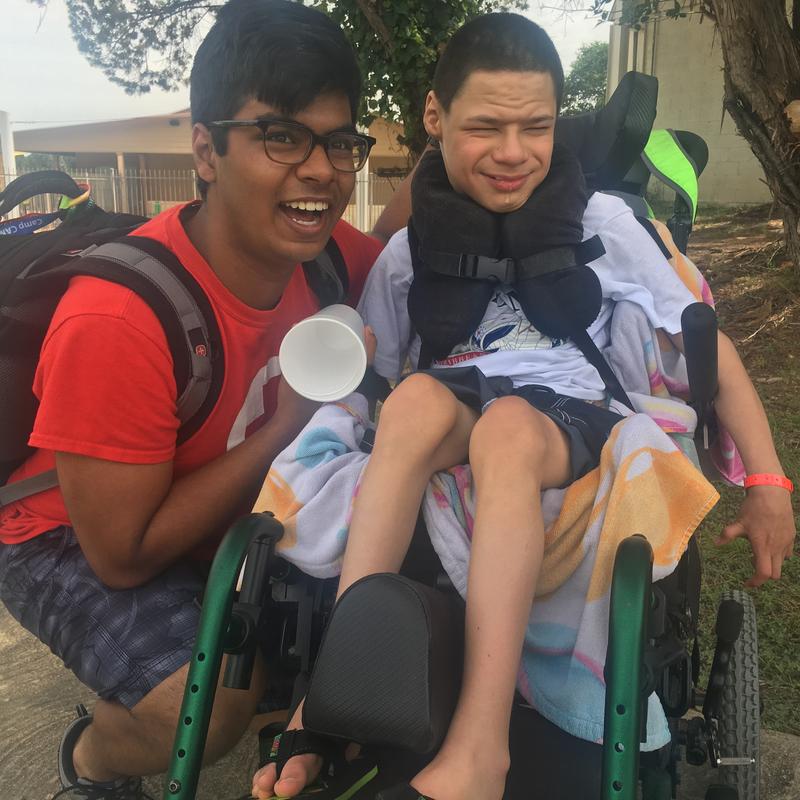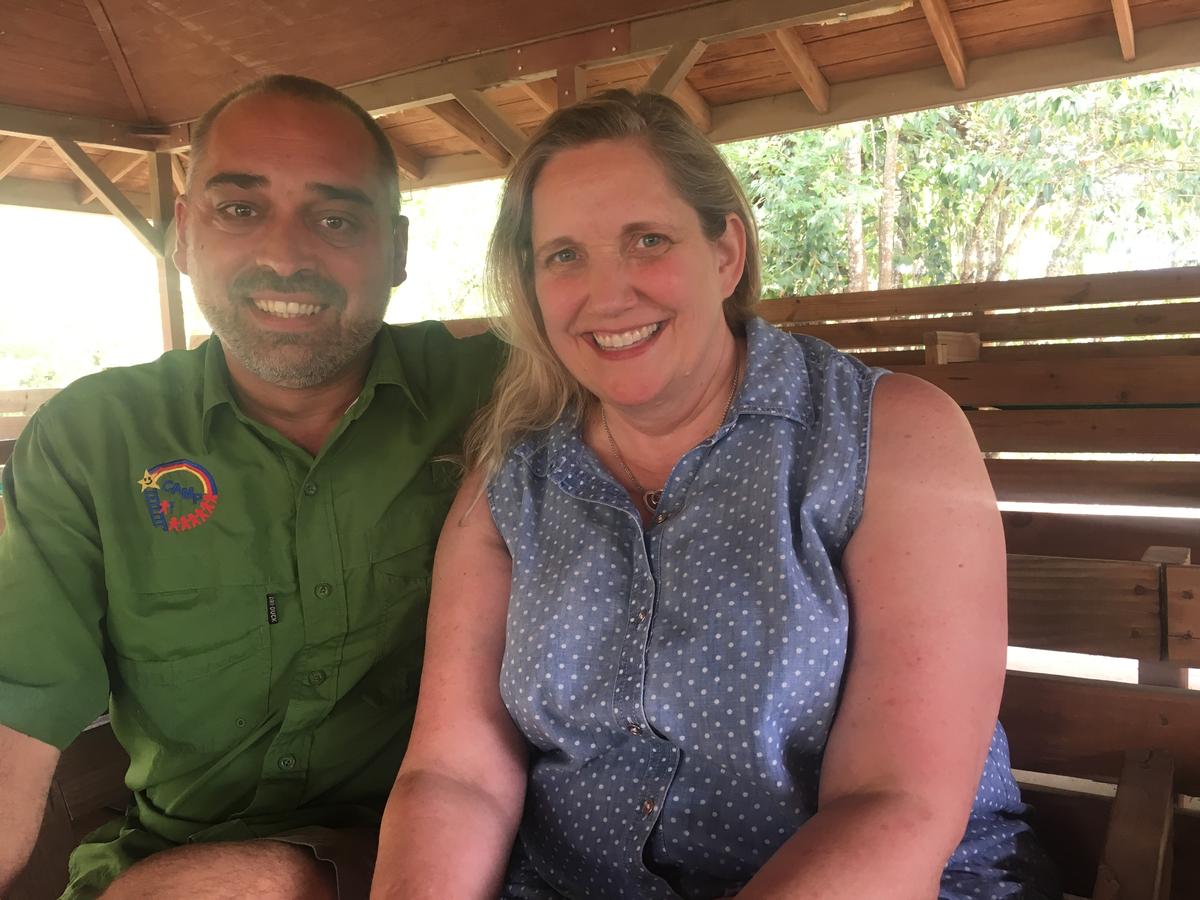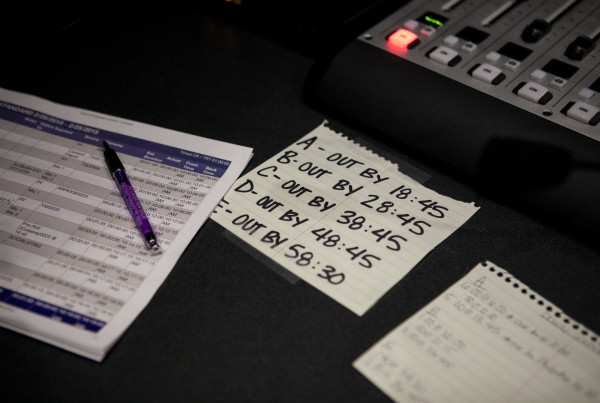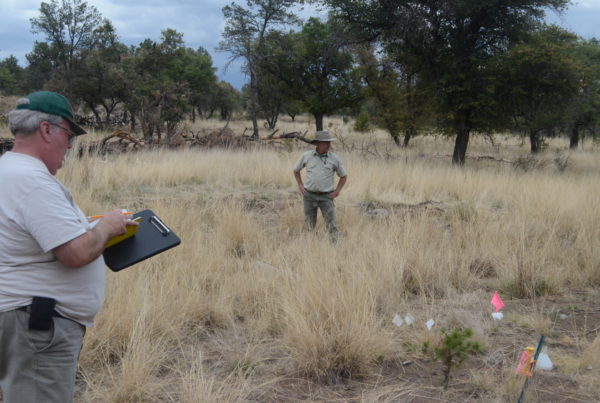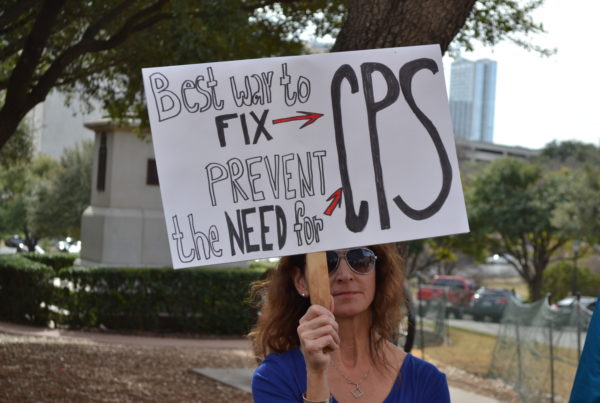From Texas Public Radio:
There’s a summer camp in Center Point, Texas that accepts kids who can’t attend other camps. The Children’s Association for Maximum Potential camp, or Camp CAMP, welcomes almost 900 children each year with a range of disabilities. Some campers have flown in from as far away as Japan.
On day two of a week at summer camp, it’s all about toe painting. Many of the campers here are in wheelchairs and the counselors have taken off campers’ shoes and socks. The counselors guide their feet into paint and then onto foam boards to make designs. Clare Maas is the arts and crafts head instructor. She says the activity is fun but it’s also therapeutic.
“It’s just sensory. It’s like playing with slime in a sense. You get to feel a different texture,” Maas says.
Ben Elble has been the CAMP director for 10 years.
“This is our arts and crafts area,” Elble says. “It’s very much patterned after art therapy. We don’t call anything at CAMP therapy, because our kids have to go to therapy 360 days a year. At CAMP we want ‘em to have fun. All of our activity areas are very therapeutic, but we never call it that.”
Milla Burt sits in her wheelchair as her counselor wipes paint off her foot with a towel. Milla is 18, has sparkling blue eyes and is quick to smile for the camera. But she’s unable to speak or use her hands to write. A tiny silver sticker in the shape of a heart sits on Milla’s forehead, just above her eyebrows. But it isn’t just a sticker. In front of Milla is a machine, the Dynovox Screen.
“The Dynovox Screen has a variety of different symbols, letters, numbers, etc.,” Elble says. “And by using the dot on her head to move the mouse around on the screen, she can pick the different symbols to be able to use corresponding words or phrases that are pre-programmed into the Dynovox.”
And so Milla is able to communicate those words and symbols to the staff just by moving her head.
Milla’s disabilities are among the many CAMP is equipped to handle. On its 55 acres in the Hill Country, there’s a counselor assigned to each child who may have seizures, ventilators or feeding tubes. Some children struggle with developmental disorders, visual impairment, hearing loss, or are unable to walk. Almost 200 medical staff volunteer each year. The campers sleep in wooden cabins.
The cost of attending CAMP is based on family income. Eighty-nine percent of those attending receive financial assistance and no child is turned away if the family is unable to pay. Private donors are big contributors to the nearly $2,000,000 annual budget.
Cynthia Oyler has been coming to camp for 12 years, since she was seven.
“When I was a kid, I got a lot of questions from kids at my school, or whatnot, asking, ‘What happened to you? Why are you in a wheelchair?’” Cynthia says.
Instead of questioning what’s wrong with her, Cynthia says the staff at CAMP treat her like a whole person.
“Usually the questions are ‘Is there anything you need help with?’” Cynthia says. “Or ‘Is there anything we need to know about you?’ Things like that. It’s one question. And done.”
When unit leader Andrew Wickersham met Brandon, he saw past his disabilities. Brandon was a camper who had trouble remembering people, but Andrew’s was a face Brandon remembered year after year. They would talk for hours.
In the summer of 2015, Andrew thought it would be a good idea to help Brandon jump into the deep end of the pool for the first time.
“I convinced him that he was going to be safe, and he would jump in in my arms,” Andrew says. “So I picked him up out of his chair and we stood on the deep end. And much to our head nurse’s chagrin, we jumped in together. And it was absolutely the highlight of his summer and the highlight of the week because it was something that he never would have been able to do elsewhere.”
Brandon died this past year.
“And so this is kind of my final summer out here, probably, being the first summer I won’t be able to see him,” Andrew says.


